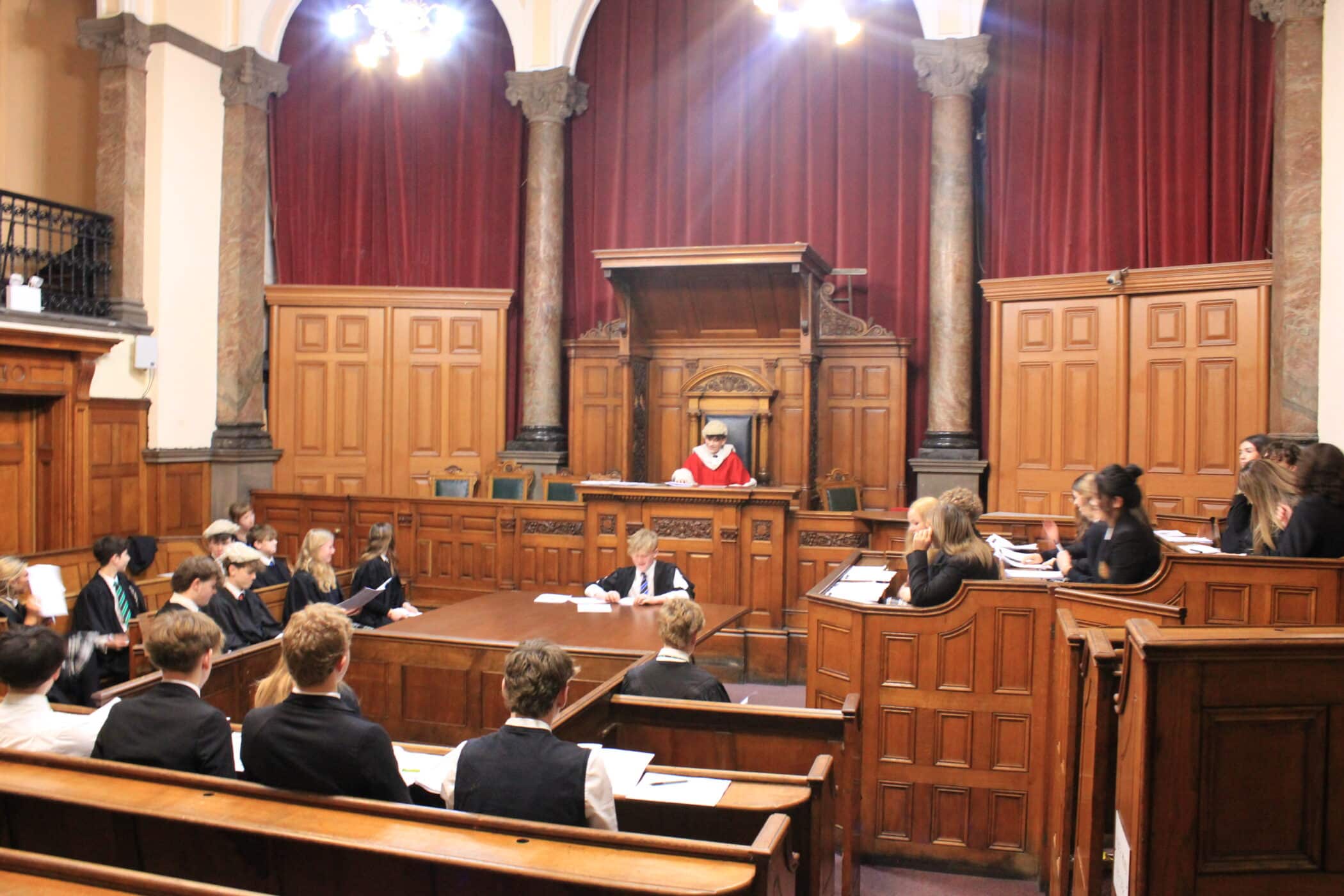The Torch Lecture series has continued to enrich our sixth formers’ learning this half term with visiting speakers offering insights into a variety of subjects. Current UCAS applicants for medicine, veterinary medicine and dentistry from Oakham and Harington Schools also joined the Form 6 / lower sixth prospective applicants for a ‘Meet the applicants’ meeting as part of the DocSoc programme. Read the highlights below.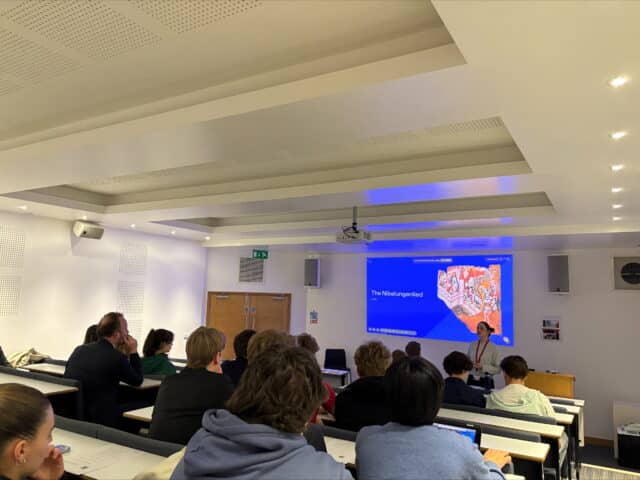
The German Department hosted Dr Mary Boyle and Matthew Parry from the University of Cambridge for a digitally interactive Torch Lecture to Upper School German pupils on the Nibelungenlied, a medieval German epic poem that tells the story of heroes, betrayal and revenge. Pupils used Mentimeter to contribute their ideas about the text in real-time. Matthew talked about his experience as both an Undergraduate and Postgraduate student at Cambridge.
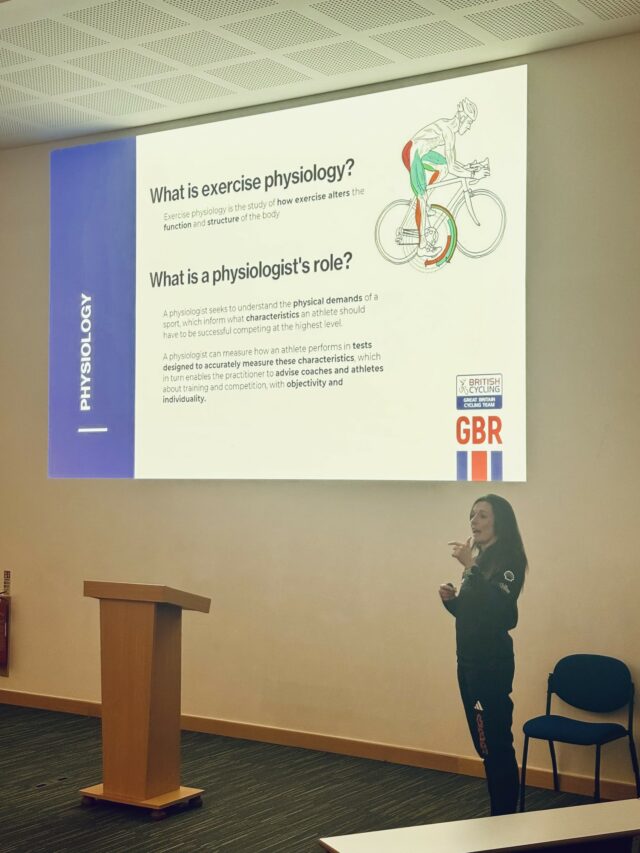
Sarah Mosley delivered a talk on ‘the team behind the team’ for the Sport Science Torch Lecture. Sarah is senior physiologist at GB Cycling and shared some of her experiences from Paris 2024. She also shared the following advice:
- Anyone can get to be a top-level practitioner in sport science through hard work – the ‘talent’ element is not necessary like it is to play top level sport.
- The opportunities within sport science are vast – from researching aerodynamics in laboratories to delivering conditioning sessions in the field.
- Athletes and staff all go through ups and downs – that’s life.
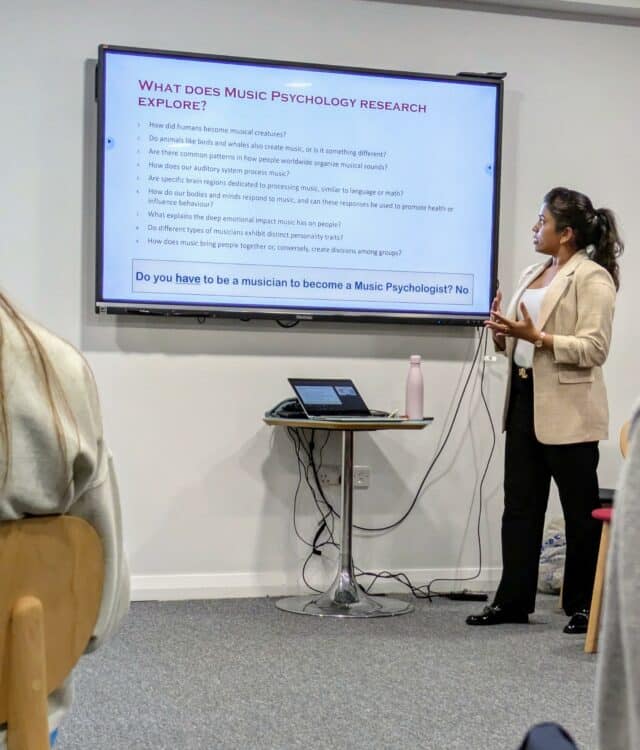 Music and Psychology joined forces for a Torch Lecture that demonstrated how both fields can combine.
Music and Psychology joined forces for a Torch Lecture that demonstrated how both fields can combine.
Dr Nellinne Perera, Lecturer at the University of Leicester, gave an inspiring talk, sharing her history of being a pianist in care homes for people living with Dementia, and how it gave them moments of joy. Since then, Dr Perera has progressed into research and gave ideas into the types of questions Music Psychologists ask:
- How do our bodies respond to music and can this be used to influence our behaviour and promote health?
- What explains the deep emotional impact that music has on people?
- Do different types of musicians exhibit different personality types?
- What makes a human a musical creature?
- How can music create communities and also divisions among people?
A discussion around ‘stage fright’ followed, with real examples of musicians who admit they dislike public performances, and ‘face blindness’, whereby some performers prefer large audiences as there are too many faces to process compared to small, intimate performances.
Although aimed at performers, the strategies Dr Perera shared could be applied to any anxiety-driven situation such as visualising a previous successful performance, slow deep breaths to activate the parasympathetic nervous system, gradual exposure from small to larger audiences and distracting yourself before the performance.
Current UCAS applicants for medicine, veterinary medicine and dentistry from Oakham and Harington Schools joined the Form 6 / lower sixth form prospective applicants for a ‘Meet the applicants’ meeting as part of the DocSoc programme.
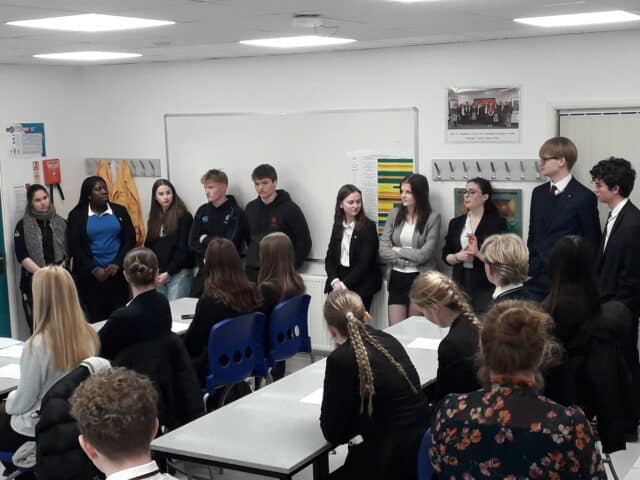
At Oakham, 12 Form 7 current and former pupils have applied for clinical courses in the 2024-2025 UCAS cycle and are awaiting results. To date, 10 offers to study medicine and veterinary medicine have been made to the group, with offers for courses in pharmacy and paramedical science also having been awarded.
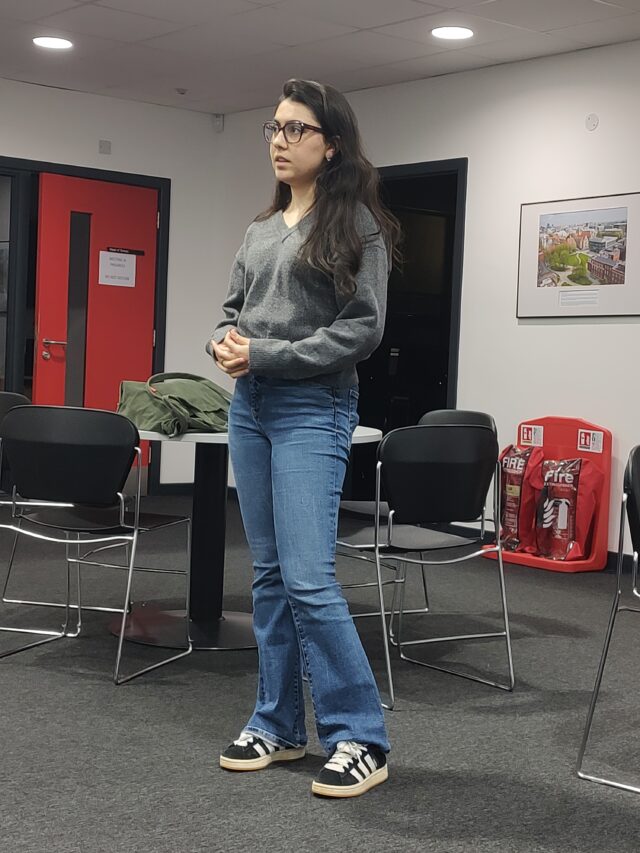
Dr Andrew Nicoll, who runs DocSoc, said: “We are grateful to the leaving year from both schools for giving up their time to see their successors and hope they soon receive further offers. Form 6 pupils recently met their counterparts at Harington School for our annual ‘Healthcare in the News’ meeting where potential applicants for clinical courses gave a presentation to their peers on a topical healthcare issue without the use of notes. Titles included: ‘The Dr Bawa-Garba Controversy’; ‘Why has the American XL bully dog breed been banned in GB?’; ‘Is it time to start charging fees for NHS services?’; and ‘The Cass Review of 2024’. We thank Harington School for hosting the meeting.”




